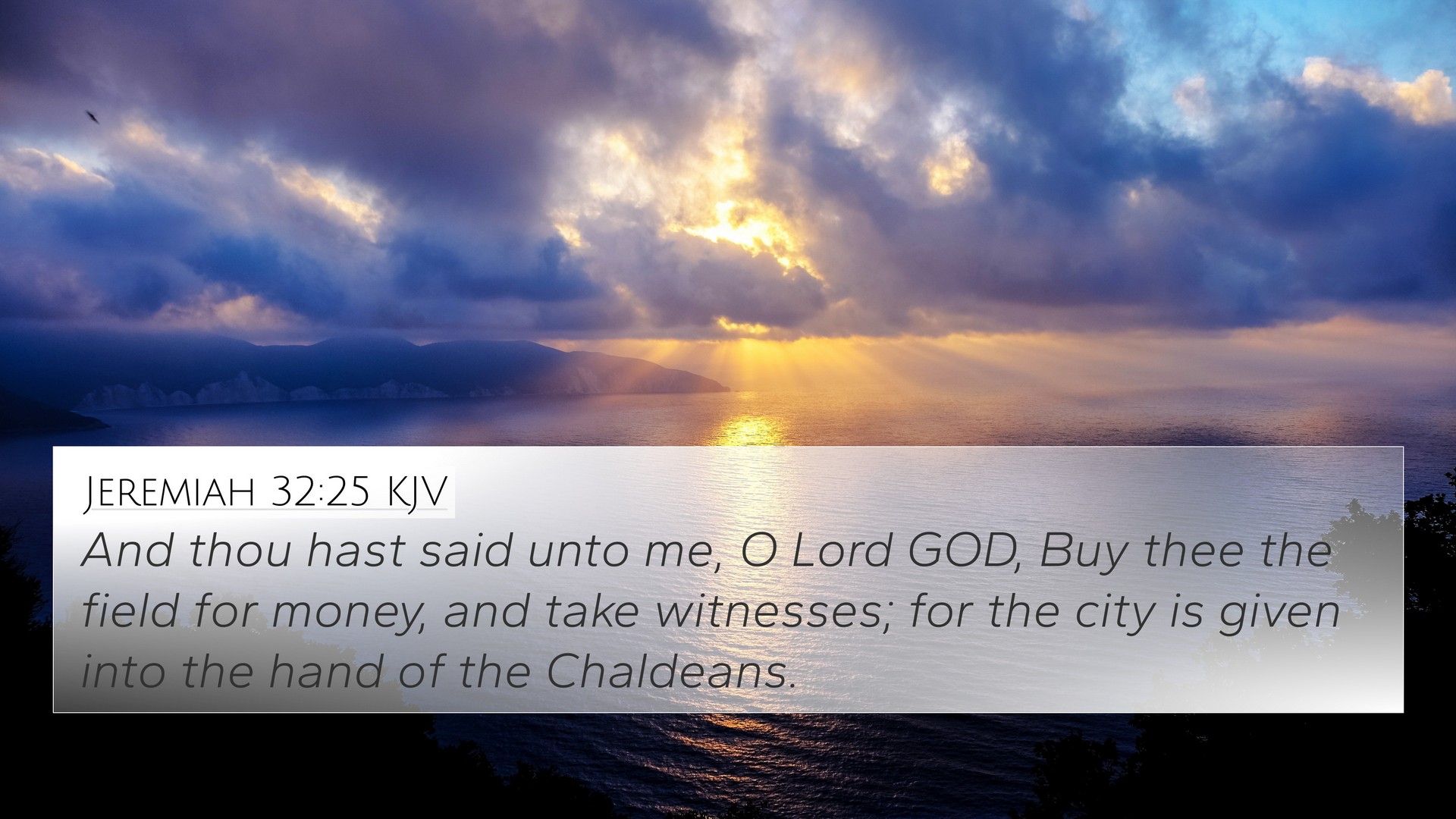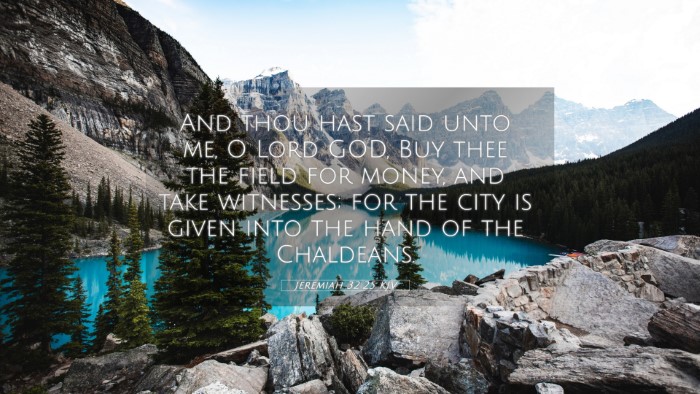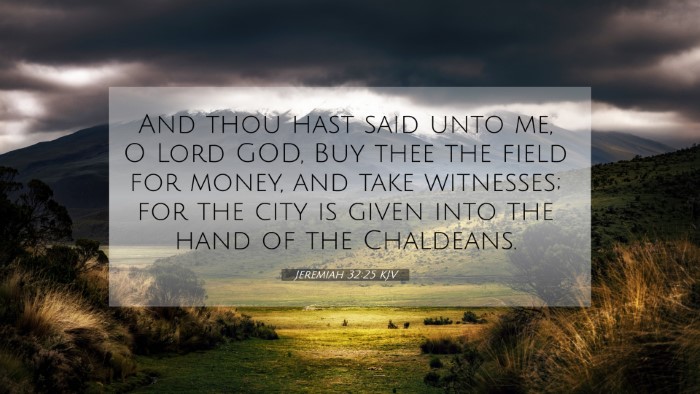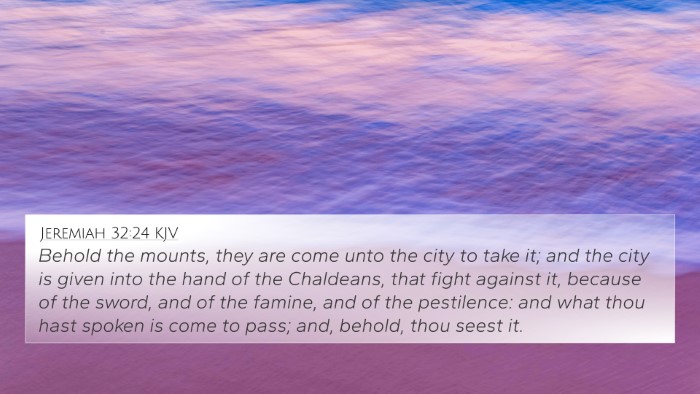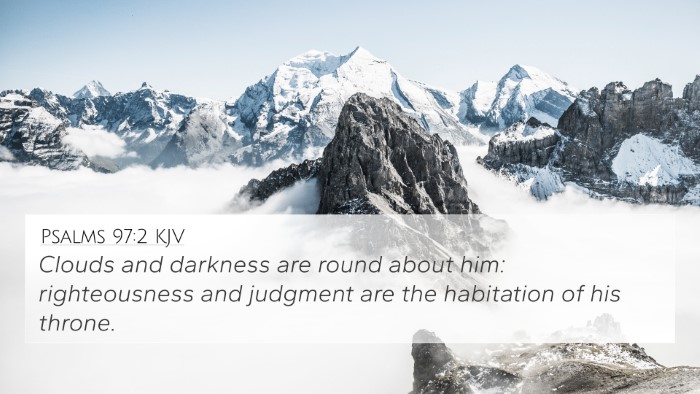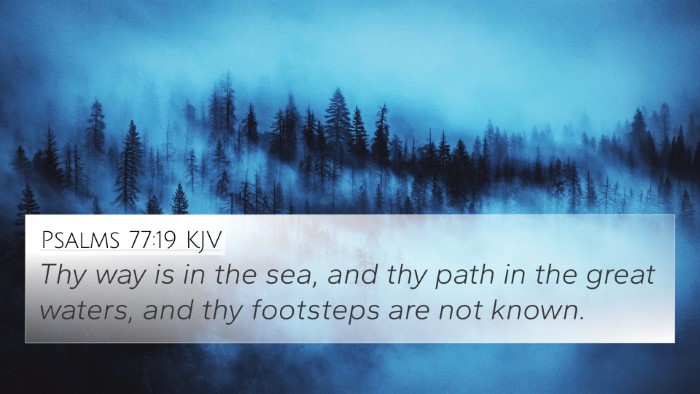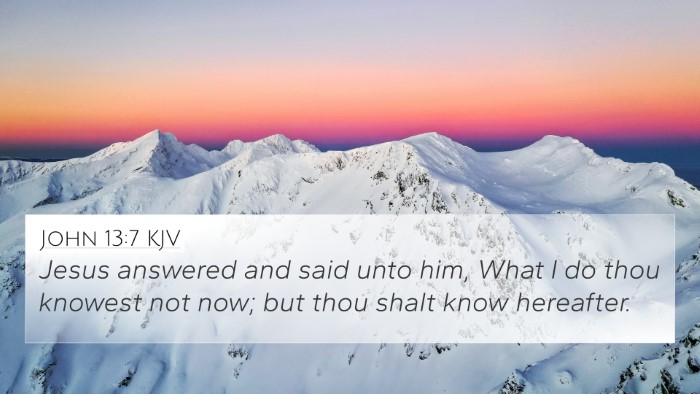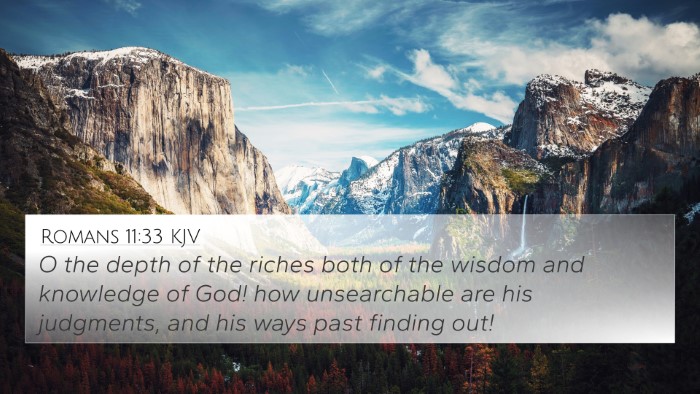Understanding Jeremiah 32:25
Jeremiah 32:25 states: "And thou hast said unto me, O Lord God, Buy thee the field for money, and take witnesses; for the city is given into the hand of the Chaldeans." This verse illustrates a profound moment in the prophet Jeremiah's life, reflecting God's intricate plans during a time of despair and judgment.
Context of the Verse
The Book of Jeremiah reveals a period of impending destruction for Jerusalem due to the sins of its inhabitants. The prophet himself finds himself in a dire situation, imprisoned yet instructed by God to act in faith by purchasing a field. This act serves as a sign of hope and future restoration.
Commentary Insights
-
Matthew Henry: Henry emphasizes the significance of buying the field as an act of faith. Despite the siege of Jerusalem, this purchase symbolizes the hope of future restoration. God instructs Jeremiah to publicly document this transaction, underscoring its importance.
-
Albert Barnes: Barnes notes that this transaction occurs during a time when Judah is on the brink of collapse. The act of buying the field represents a declaration that God will eventually bring His people back to their land, reaffirming His promises despite current circumstances.
-
Adam Clarke: Clarke highlights the contrast between the temporal judgment upon Jerusalem and the eternal covenant that God has with His people. By purchasing the field, Jeremiah embodies the faith that underlies God's plans, which transcend present trials.
Thematic Bible Verse Connections
Jeremiah 32:25 connects with several significant themes throughout the Bible. It illustrates themes of hope, restoration, and divine providence, which resonate in various passages.
-
Isaiah 43:1-2: This passage reassures God’s people of His everlasting presence and protection, offering comfort amid trials.
-
Ezekiel 36:24-26: God promises to gather His people from the nations, bringing them back to their homeland and transforming their hearts.
-
Romans 8:28: The assurance that all things work together for good for those who love God aligns with Jeremiah's act of faith amid uncertainty.
-
Revelation 21:2-4: The new Jerusalem presented in Revelation reflects the ultimate fulfillment of God’s promises and the hope of restoration.
-
Hebrews 11:1: Faith is defined as the assurance of things hoped for, paralleling Jeremiah’s faith in God’s promise despite immediate adversities.
-
Galatians 6:9: Encouragement to not lose heart in doing good reflects the enduring nature of God’s plans, similar to Jeremiah's actions.
-
2 Corinthians 5:7: Living by faith and not by sight connects with Jeremiah's decision to buy the field when all seemed lost.
Cross-Referencing Biblical Texts
Cross-referencing Jeremiah 32:25 with these related scriptures can deepen understanding of the inter-Biblical dialogue and highlight connections between themes of faith and restoration:
- Jeremiah 29:10-14: God's plan for welfare and a future gives hope beyond exile.
- Amos 9:14: The promise that God will restore the fortunes of His people resonates with Jeremiah's action.
- Matthew 6:33: Seeking first the kingdom of God assures believers that their needs will be met.
Practical Applications
For modern readers, Jeremiah 32:25 illustrates that faith can manifest in tangible ways.
Whether through acts of service or financial decisions, believers are encouraged to trust in God's promises even when circumstances seem dire.
This verse serves as a reminder that God’s larger narrative is at play, guiding believers to act in faith, understanding that He has ultimate control over situations.
Final Reflection
In studying Jeremiah 32:25 through the lenses of these commentaries and connections, one can appreciate the encouragement found in the Scriptures.
This verse teaches us that hope and restoration are central to God’s character, urging us to engage with our faith actively and thoughtfully.
